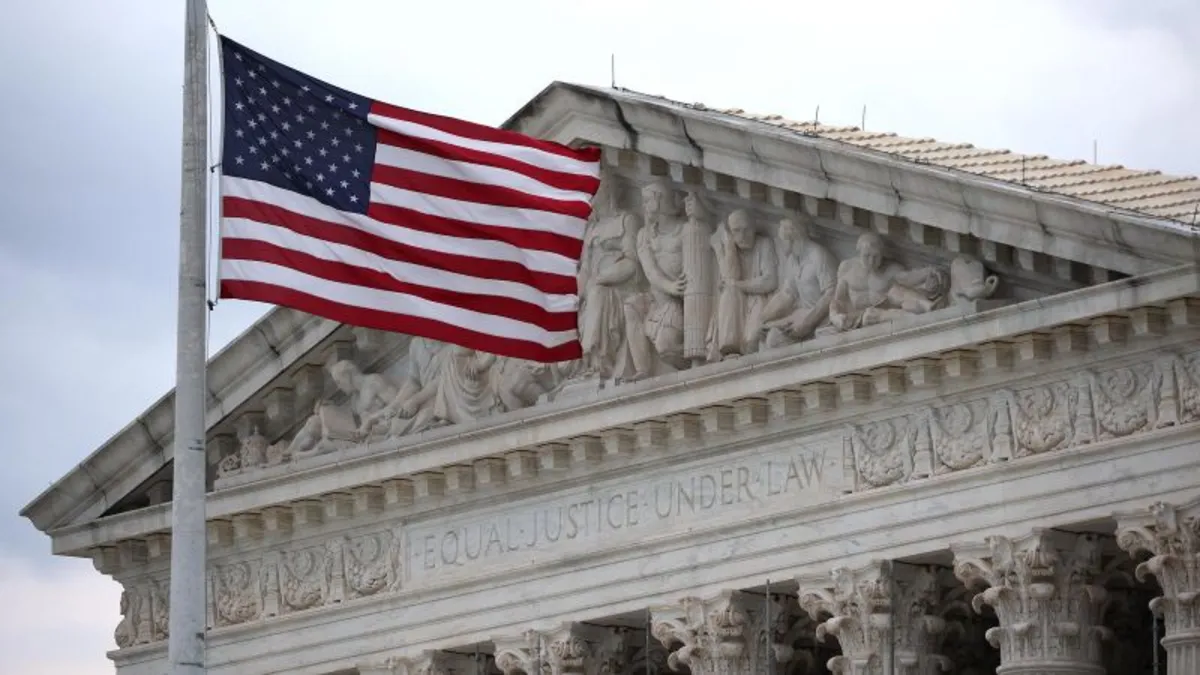
The Supreme Court made a significant ruling on Friday, allowing President Donald Trump’s administration to suspend a humanitarian parole program initiated during the Biden administration. This program had granted temporary residency and work permits to approximately half a million immigrants from Cuba, Haiti, Nicaragua, and Venezuela, enabling them to live and work in the United States. This decision marks the second instance this month where the high court has supported Trump’s efforts to revoke temporary legal status for immigrants, despite Trump's ongoing criticisms of the federal judiciary.
Earlier in the month, the Supreme Court also facilitated the administration in revoking another temporary program that had provided work permits to hundreds of thousands of Venezuelans. The recent order from the court was brief and unsigned, as is typical for decisions made on its emergency docket, and it did not include any reasoning. Notably, two liberal justices, Sonia Sotomayor and Ketanji Brown Jackson, dissented from this decision, highlighting the potential consequences for the affected migrants.
Although the emergency decision from the Supreme Court is not final and the underlying legal case will continue in lower courts, it allows the administration to accelerate deportations for an estimated 530,000 migrants who previously benefited from the program. A significant number of these beneficiaries may have sought other forms of protection or immigration relief.
Karen Tumlin, founder and director of the Justice Action Center, expressed profound concern, stating, “I cannot overstate how devastating this is.” Tumlin, part of the legal team representing the migrants, emphasized that the ruling will unleash chaos, impacting not only the migrants but also their families, workplaces, and communities.
In a passionate dissent, Justice Jackson criticized her colleagues for what she deemed a miscalculation in evaluating the potential negative consequences of lifting the lower court ruling. She pointed out that the decision undermines the devastating impact on nearly half a million noncitizens while their legal claims are still pending. Jackson stated, “The court has now apparently determined that the equity balance weighs in the government’s favor,” suggesting that it is unjust to allow the lives of these migrants to unravel before their legal claims are resolved.
White House deputy chief of staff Stephen Miller responded to the ruling, stating that the administration is pleased that the Supreme Court intervened, allowing for the deportation of migrants impacted by lower court injunctions. This ruling significantly increases the number of migrants from the four affected countries who may face removal by the Trump administration, despite many being unwilling to return to their home countries.
Since the 1950s, federal immigration law has permitted administrations to grant "parole" to certain migrants arriving at the border for humanitarian reasons. Historical precedents include the Eisenhower administration, which paroled tens of thousands of individuals fleeing Hungary during a Soviet crackdown post-World War II. Typically, paroled migrants are allowed to live and work in the U.S. for up to two years, although their status remains temporary.
In 2023, the Biden administration announced a program to grant parole to qualified migrants from Cuba, Haiti, Nicaragua, and Venezuela, contingent upon their submission to a vetting process rather than illegal entry. Applicants were required to have an American sponsor and clear security checks. On his first day in office, Trump signed an order aimed at unilaterally terminating this program.
The crux of the legal debate hinges on whether Secretary of Homeland Security Kristi Noem can revoke parole status en masse or if a case-by-case review is necessary. The Biden administration appears to have conducted individual reviews before granting parole, which contrasts with the Trump administration's broad approach to terminating the program.
After a group of migrants filed a lawsuit, U.S. District Judge Indira Talwani issued a temporary block on the administration's efforts to end the program. She noted that while the administration could terminate parole for individuals, it must do so after a thorough review. The situation remains dynamic, with the Supreme Court poised to hear further arguments regarding immigration policies and the extent of executive power.
As the legal landscape continues to evolve, the implications of this ruling will likely resonate through ongoing and future immigration cases. This ruling exemplifies the complex interplay between immigration policy and judicial oversight, raising critical questions about the rights of migrants and the authority of the federal government.